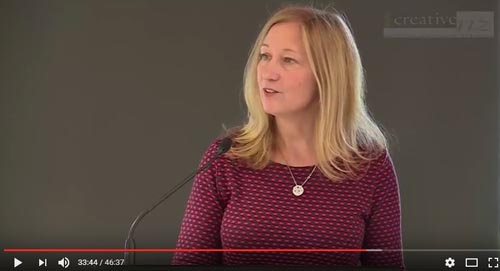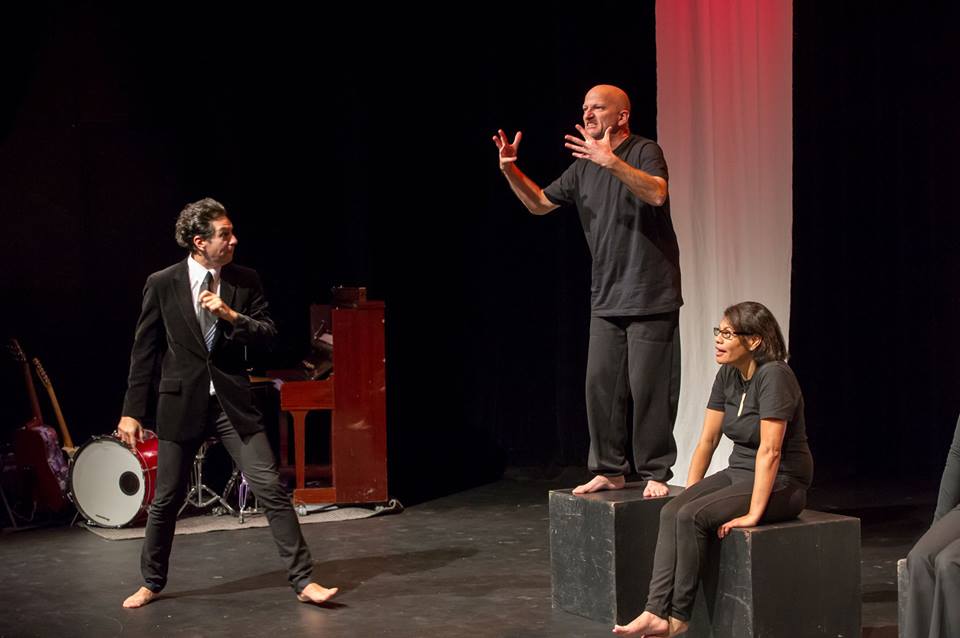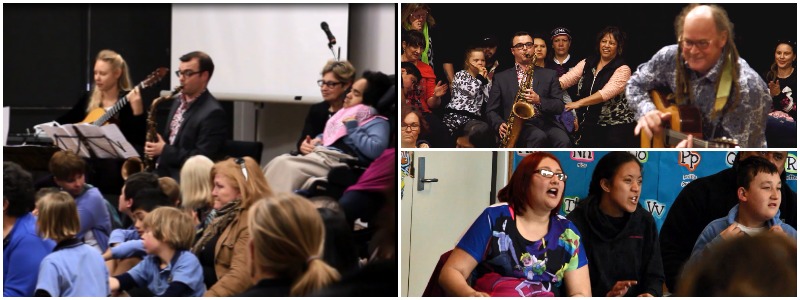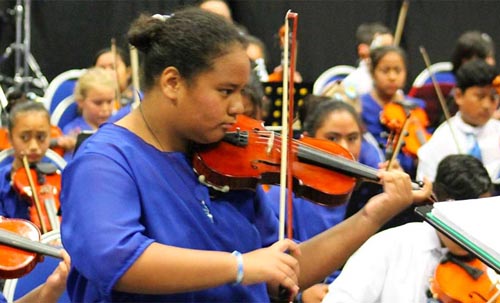Diane Ragsdale was the keynote speaker at Creative New Zealand’s The Big Conversation – a busy one-day rev-up for arts leaders held recently in Christchurch. Diane’s talk questioned why some people simply don’t engage with the arts and explored how we can foster more meaningful engagement so they can.
 You can see her presentation Transformation or Bust online. Diane’s talk made me think about Arts Access Aotearoa’s work with excluded communities because we know that people won’t come if there is no historical or cultural association, and no authentic invitation to an arts event.
You can see her presentation Transformation or Bust online. Diane’s talk made me think about Arts Access Aotearoa’s work with excluded communities because we know that people won’t come if there is no historical or cultural association, and no authentic invitation to an arts event.
At least, not in great numbers. For example, why should people who are Deaf come to a theatre performance even if it is interpreted in NZSL? If you have had no association with theatre all your life, if there’s nothing that resonates with you and if your own language is not included, then it’s going to take some convincing and other layers of engagement to develop a Deaf theatre-going audience.
Think how many hearing people don’t like going to subtitled foreign language films and you’ll get my drift.
Engaging with the Deaf community
The emergence of the theatre company that produced At the End of My Hands is a positive sign to the Deaf community. This company, which includes Deaf and hearing actors, uses NZSL and English in equal measure, and whole body communication. The performances have been enjoyed by both hearing and non-hearing audiences.
 One of my take-ways from Diane’s presentation was for us to expand our notion of who might support the arts beyond the question of "Who’s going to fund us?” Can we treat people we want to buy tickets – our audiences – as advocates rather than just customers? How often do we encourage or give people who care about our arts organisation/event/festival or programme the opportunity to advocate for and participate other than buy a ticket, see the show and go home?
One of my take-ways from Diane’s presentation was for us to expand our notion of who might support the arts beyond the question of "Who’s going to fund us?” Can we treat people we want to buy tickets – our audiences – as advocates rather than just customers? How often do we encourage or give people who care about our arts organisation/event/festival or programme the opportunity to advocate for and participate other than buy a ticket, see the show and go home?
Finding authentic ways to engage with audiences (who may or may not purchase tickets to our events) is a whole-of-community thing. What our works reflect about our values and place within a neighbourhood helps us become more authentic and therefore something that the community of ticket buyers also cares about.
Another way to look at it: who cares whether we are here or not? Who feels they have ownership in what any arts organisation does? Who would be mightily displeased if you were not doing what you do?
This is a question that arts organisations in the disability sector well understand as they work within and alongside their communities.
Access to creative expression
Participation in the arts is a right and we should all have access to creative expression. All people are better off when barriers to participation and accessibility to the arts are down and enjoyment and creative fulfilment is up.
 I’m grateful for funding through the Ministry of Social Development’s Think Differently campaign and for the skills of filmmaker Lala Rolls for Arts Access Aotearoa’s latest example of accessible arts on video. Chamber Music New Zealand, with Julian Raphael and Mahinawa Specialist School, embarked on a project where chamber musicians Trio Amistad joined together to make and listen to music.
I’m grateful for funding through the Ministry of Social Development’s Think Differently campaign and for the skills of filmmaker Lala Rolls for Arts Access Aotearoa’s latest example of accessible arts on video. Chamber Music New Zealand, with Julian Raphael and Mahinawa Specialist School, embarked on a project where chamber musicians Trio Amistad joined together to make and listen to music.
This was achieved by working with students with intellectual, physical, emotional and/or behavioural disabilities that prevent them from learning satisfactorily in mainstream school classrooms.
You can watch the video and read the story, Video promotes chamber music for all, on the Arts Access Advocates website.
With these students, making music or listening to a concert needs to happen without them having to "sit quietly”. The protocol that it’s okay to make noise if you need to, walk around or take a break provides an inclusive environment where the musicians, students and audience can just get on with the joy of music making.
Making relaxed performances normal at your place
What I also enjoy at these relaxed performances for music is the expression on the faces of parents. Without the anxiety of “needing to keep a lid on things”, they can relax also and enjoy their child’s abilities and participation. I hope you like the video and can share it with your contacts. This is what’s possible so please ask for this to happen and make it normal at your place.
 I was very impressed by the music making and opportunities provided by Virtuoso Strings at its concert at Porirua College on 1 and 2 July. The Virtuoso Strings Charitable Trust is a registered charity that provides students from low-decile schools in Porirua with the opportunity for tuition and ensemble playing via a Sistema-based music programme. There is no barrier to a child’s participation as the provision of the string instruments and tuition is free.
I was very impressed by the music making and opportunities provided by Virtuoso Strings at its concert at Porirua College on 1 and 2 July. The Virtuoso Strings Charitable Trust is a registered charity that provides students from low-decile schools in Porirua with the opportunity for tuition and ensemble playing via a Sistema-based music programme. There is no barrier to a child’s participation as the provision of the string instruments and tuition is free.
The commitment of founders Elizabeth Sneyd and Craig Utting is infectious and they are supported by schools and dedicated volunteers. Their programme is ambitious, entertaining and delightful to witness.
Along with Chamber Music New Zealand’s relaxed performances, Virtuoso Strings takes away the barriers to music making and develops the skills, confidence and creativity of children who have been provided access to music.
Virtuoso Strings have a donor programme where you can support the tuition of a child from a low-decile school. If you’d like to support please contact Elizabeth at liz@virtuosostrings.co.nz
LATEST POSTS
Arts Blog Categories
- Accessibility
- Accessible Arts
- Achievements Celebrations
- Active Recreation
- Advocacy Campaigns
- All New Zealand
- Arts Accessibility
- Arts Culture
- Arts Culture Venues
- Arts For All
- Arts In Corrections
- Canterbury Region
- Capacity Building
- Community Arts
- Community Services
- Covid 19
- Creative Spaces
- Creative Wellbeing
- Dance
- Disability
- Festivals Arts
- Galleries
- Global Issues
- Health
- Learning Disabilities
- Local People
- Maori Art
- Mental Health
- Musical Theatre
- Obituaries
- Professional Development
- Professional Development Arts
- Stories About Organisations
- Theatre
- View Point
- Visual Arts


